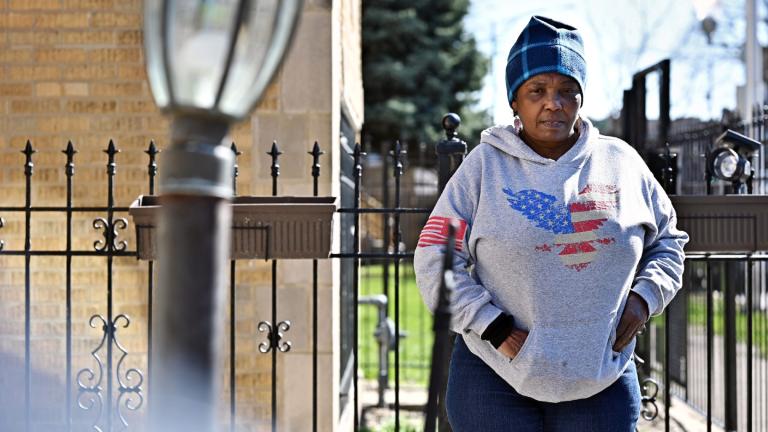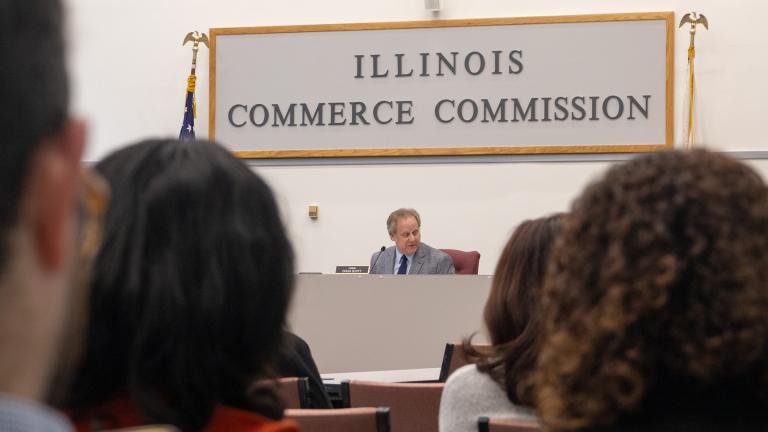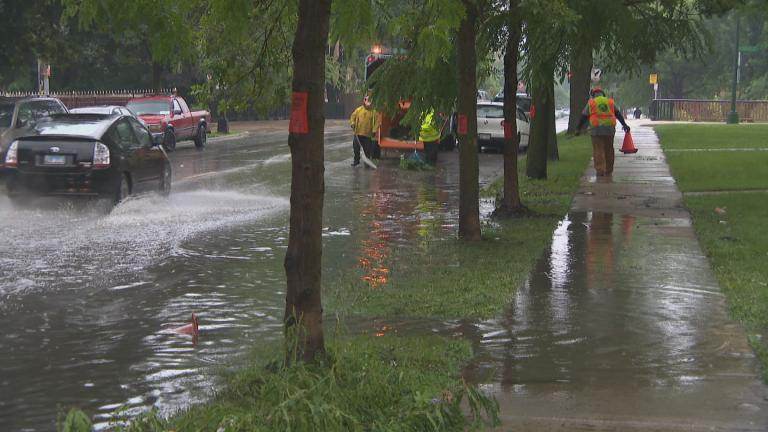Video: The WTTW News Spotlight Politics team breaks down the day’s biggest stories. (Produced by Paul Caine)
The battle over whether to functionally ban the use of natural gas to power most new Chicago homes and businesses began in earnest on Tuesday, with supporters of the push designed to combat climate change preparing to introduce the proposal to the Chicago City Council on Wednesday.
While similar measures are already in place in New York City, Los Angeles and dozens of smaller cities, it is unclear whether the push for Chicago to join those cities will succeed, even with the backing of Mayor Brandon Johnson.
Ald. Maria Hadden (49th Ward), the chair of the Environmental Protection and Energy Committee, said the proposal, dubbed the Clean and Affordable Buildings ordinance, was “the first step in a managed, planned process to move away from dirty, expensive gas and embrace a cheaper, cleaner energy future for all Chicagoans.”
But Chicagoans will not see radical change if the proposal is approved, supporters said.
“We’re doing just the first baby steps making sure that we can have a cleaner, more affordable and healthier environment,” said Hadden, who is one of 15 cosponsors.
But representatives of People’s Gas said in a statement that the measure “would increase costs and risk reliability for everyone, especially during the coldest days of the year like Chicago has been seeing.”
Nine alderpeople launched a preemptive strike against the measure on Monday, holding a news conference at City Hall alongside representatives of International Union of Operating Engineers Local 150.
Ald. Gilbert Villegas (36th Ward) said Chicago must reduce greenhouse gas emissions, but said relying on electricity would not be reliable, clean or affordable for residents, and blasted the mayor and his allies for attempting to “hastily slam through an ordinance without examining true costs.”
The proposal is designed to make it more affordable for Chicagoans to heat their homes, while making indoor air safer to breathe, Johnson said in a statement.
“Too many Chicagoans are having trouble paying their gas bills, and too many families are exposed to chemicals that cause cancer and asthma when burning gas in their kitchens,” said Johnson, who suffered from asthma as a child.
The ordinance would set an indoor emissions standard that natural gas appliances cannot comply with, requiring all-electric heat and appliances to be installed in new construction. The proposal would not require exsiting homes and businesses to install electric appliances, Hadden said.
The change is designed to eliminate the use of fossil fuels in newly built structures, reducing the amount of greenhouse gas emissions and fighting climate change. Nearly 70% of total citywide greenhouse gas emissions come from buildings in Chicago.
“We know for a clean, healthy and affordable future, we need to make these changes,” Hadden said, calling the proposal “a game changer.”
Chief Sustainability Officer Angela Tovar called the measure “a reasonable first step” four times during a City Hall news conference on Tuesday and said the new requirements would encourage the creation of good paying jobs for young Chicagoans and those returning to the city from jail and prison.
New hospitals, research laboratories, emergency backup power generators and commercial cooking equipment would be exempt from the requirements, according to the proposal.
State law requires Illinois to transition to 100% clean energy by 2050 and sets timelines for coal and natural gas plants to stop operating.
A 2022 analysis paid for by the Natural Resources Defense Council found that Chicagoans could save roughly $11,000 to $24,000 during a 20-year period by replacing natural gas appliances with all-electric stoves and furnaces.
ComEd, which powers every building in Chicago, gets 39% of its electricity from renewable sources, all but 6% from nuclear power, according to the utility’s disclosure report. The rest comes from natural gas and coal, according to the report.
A spokesperson for ComEd said the utility “will ensure the grid is ready to handle new technologies, like (electric vehicles) and heat pumps, as energy demands change and as communities adopt more renewable energy.”
Commonwealth Edison’s lucrative contract to power all homes and businesses in Chicago expired in 2020 after negotiations with former Mayor Lori Lightfoot stalled after the utility giant admitted that firm officials arranged jobs, contracts and payoffs to associates of former House Speaker Michael Madigan in return for the powerful lawmaker’s support for laws that allowed ComEd to hike electricity rates. The firm agreed to pay a $200 million fine to resolve federal corruption charges.
Madigan has pleaded not guilty to nearly two dozen criminal charges. He is set to stand trial in October.
The Chicago City Council never voted on an agreement negotiated by Lightfoot in her final months in office that would have extended the contract for 15 years in return for at least $100 million to be used in the city’s fight against climate change.
Contact Heather Cherone: @HeatherCherone | (773) 569-1863 | [email protected]








